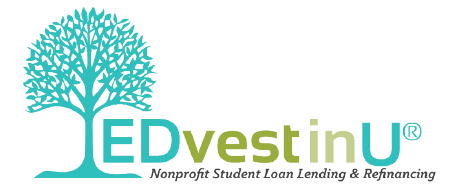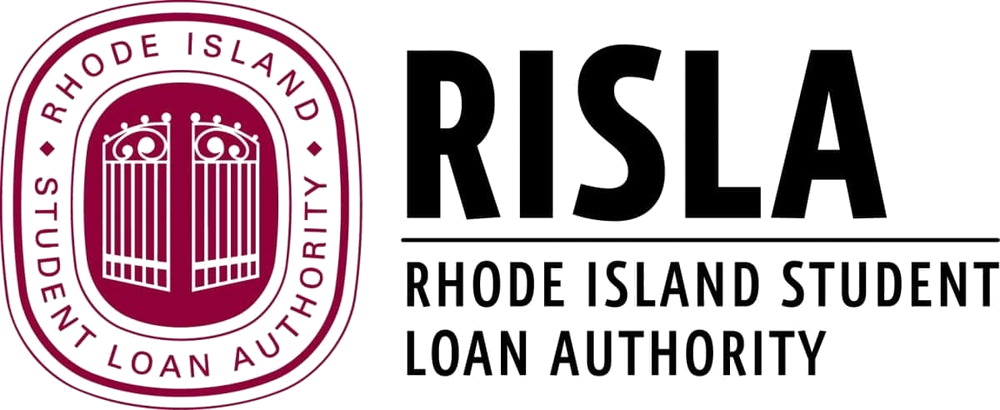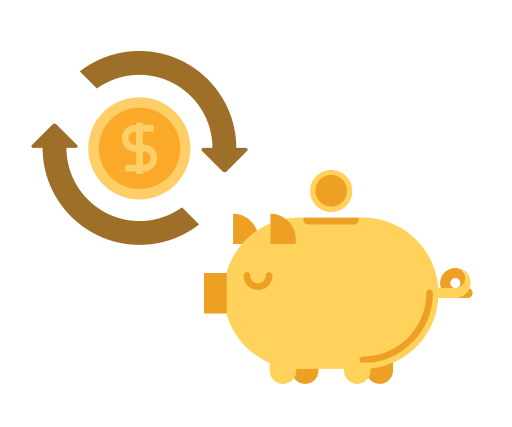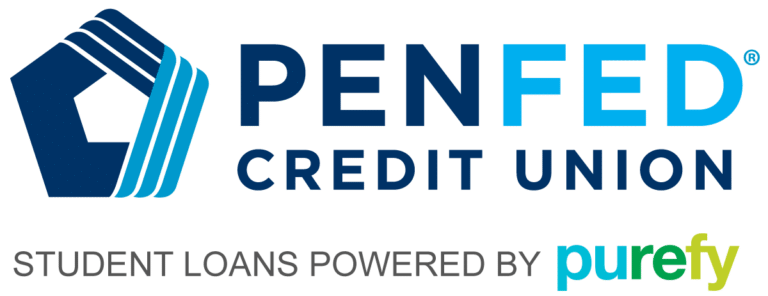Our goal is to give you the tools and confidence you need to improve your finances. Although we receive compensation from our partner lenders, whom we will always identify, all opinions are our own. Credible Operations, Inc. NMLS # 1681276, is referred to here as "Credible."
Student loan refinancing lenders often require borrowers to make a minimum amount of income to be eligible for refinancing — which means your options might be limited if you don’t make very much money. However, there are several lenders willing to work with low-income borrowers.
While there’s no official definition for what low income means, it’s generally understood to be any amount lower than the median household income. In 2020, the median household income in the U.S. was $78,500, according to the U.S. Department of Housing and Urban Development.
If you make less than this, refinancing student loans could be difficult. However, there are several lenders willing to work with low-income borrowers.
Here’s how to refinance student loans with low income:
- Best lenders for refinancing student loans with low income
- How to refinance student loans with low income
- Is it worth it to refinance student loans?
- Frequently asked questions about student loan refinancing
Best lenders for refinancing student loans with low income
Some refinancing lenders have much lower income requirements than others. There are even a few that don’t have a minimum income requirement at all.
Here are Credible’s partner lenders that offer student loan refinancing to low-income borrowers:
| Lender | Fixed rates from (APR) | Variable rates from (APR) | Min. loan amount | Min. income |
|---|---|---|---|---|
 | 4.19%+ | 3.69%+ | $10,000 | $60,000 |
 | 5.44%+1 | 5.52%+1 | $10,000 (depending on degree type) | N/A |
 | 6.99%+2 | 6.99%+2 | $5,000 (depending on degree type) | N/A |
 | 4.15%+5 | 5.22%+5 | $1,000 | $30,000 to $50,000 (depending on loan amount) |
 | 4.88%+3 | 4.74%+3 | $10,000 | $35,000 |
 | 5.1%+4 | 7.22%+4 | $5,000 | $36,000 |
 | 4.39%+ | 3.86%+ | $5,000 | $40,000 |
 | 6.2%+ | N/A | $10,000 | $24,000 |
 | 3.99%+ | N/A | $7,500 (depending on degree type) | $40,000 |
| Compare personalized rates from multiple lenders without affecting your credit score. 100% free! |
||||
All APRs reflect autopay and loyalty discounts where available | 1Citizens Disclosures | 2College Ave Disclosures | 5EDvestinU Disclosures | 3 ELFI Disclosures | 4INvestEd Disclosures | 7ISL Education Lending Disclosures | 8Nelnet Bank Disclosures |
||||
Brazos
If you’re a Texas resident, Brazos might be a good choice for student loan refinancing. With Brazos, you can refinance $10,000 to $400,000 (depending on your degree). To be eligible, you must have a minimum income of $60,000 (or $30,000 if you apply with a cosigner).
Pros
- Competitive interest rates
- Variety of repayment terms offered
- No application, origination, or disbursement fees
Cons
- Only available to Texas residents
- Cosigner release not offered
- Might be difficult to qualify if you don’t have good credit
Citizens Bank
With Citizens Bank, you can refinance $10,000 to $750,000 (depending on your degree and loan type). This could make it a good option for borrowers who left school with a high amount of student debt.
Pros
- 0.25% autopay discount
- 0.25% loyalty discount
- Degree not required for refinancing
Cons
- Doesn’t disclose minimum credit score requirements
- Long cosigner release period (36 months)
- Must have at least $10,000 to refinance
College Ave
If you’re looking for a variety of repayment terms to pick from, College Ave could be a good option — refinanced loans come with a choice of 16 loan terms ranging from five to 20 years.
Pros
- 0.25% autopay discount
- Variety of repayment terms
- No application, origination, or disbursement fees
Cons
- Doesn’t disclose minimum credit score requirements
- Can’t refinance Parent PLUS Loans into student’s name
- Not available in Maine
EdvestinU
With EdvestinU, you can refinance loan amounts from $7,500 to $200,000 with terms from five to 20 years. Keep in mind that EdvestinU’s minimum income requirement ranges from $30,000 to $50,000, depending on your loan amount.
Pros
- 0.25% autopay discount
- Degree not required
- No application, origination, or disbursement fees
Cons
- Could be hard to qualify if you don’t have good credit
- Long cosigner release period (36 months)
- Can only refinance up to $200,000, which might not be enough for more expensive degrees
ELFI
Unlike other lenders, ELFI has no maximum limit for student loan refinancing — you’ll just need to have a minimum loan amount of $10,000. This could make it a good option if you have a high student loan balance. To be eligible, you must have a minimum income of $35,000.
Pros
- No maximum loan amount
- Variable rates capped at 9.95% APR
- Up to 12 months of forbearance available to borrowers experiencing financial hardship
Cons
- Cosigner release not offered
- Must have at least $10,000 to refinance
- Fewer repayment options available to parent borrowers
INvestEd
INvestEd offers refinancing on loans from $5,000 to $250,000 with repayment terms from five to 20 years. Additionally, you don’t need to have graduated to potentially qualify with INvestEd — though you’ll need to make at least $36,000 per year.
Pros
- Degree not required
- 0.25% autopay discount
- Up to 24 months of forbearance available over the life of the loan (one to three months duration per forbearance)
Cons
- Long cosigner release period (48 months)
- Might be difficult to qualify if you don’t have good credit
- $250,000 loan maximum, which might not be enough for borrowers with high student loan balances
MEFA
MEFA offers student loan refinancing starting at $10,000 with no set maximum. While you don’t need to have graduated to potentially qualify, you’ll have to make at least $24,000 per year to refinance with MEFA.
Pros
- No maximum loan amount
- Competitive rates
- Degree not required
Cons
- Cosigner release not offered
- Not available to borrowers who attended for-profit schools
- Limited repayment terms available
PenFed
With PenFed, you can refinance $7,500 to $300,000. Additionally, PenFed is the only major lender that allows spouses to refinance their student loans together. You’ll need to have a minimum income of $42,000 to $50,000 (depending on the loan amount) to potentially qualify.
Pros
- Cosigner release offered after just 12 months of consecutive, on-time payments
- Spouses can consolidate their student loans
- Can refinance Parent PLUS Loans into student’s name
Cons
- Must join the credit union to take out a loan
- 20-year repayment term not offered
- Might be difficult to qualify if you don’t have good credit
RISLA
Private student loans generally come with fewer protections than federal student loans. However, with RISLA, borrowers who experience financial hardship can sign up for an income-based repayment (IBR) plan that works similarly to the federal IBR plan.
Under this plan, your payments will be capped at 15% of your discretionary income, and any remaining balance will be forgiven by RISLA after 25 years.
To refinance with RISLA, you’ll need to make at least $40,000 per year.
Pros
- Income-based repayment plan available
- Can defer payments for up to 36 months if you return to graduate school
- 0.25% autopay discount
Cons
- Cosigner release not offered
- Variable rates not available
- $250,000 loan maximum, which might not be enough for borrowers with high student loan balances
Learn More: Best Companies to Refinance Parent PLUS Loans
How to refinance student loans with low income
If you’re ready to refinance your student loans, follow these four steps:
- Research and compare lenders. Be sure to compare as many student loan refinance companies as possible to find the right loan for you. Consider minimum income requirements as well as interest rates, repayment terms, and any fees charged by the lender.
- Pick a loan option. After you’ve compared lenders, pick the loan option that works best for your needs.
- Complete an application. Once you’ve picked a loan, you’ll need to fill out a full application and submit any required documentation, such as tax returns or pay stubs.
- Manage your payments. If you’re approved, make sure to keep up with the payments on your old loan while the refinance is processed. Once your new loan is ready to go, consider signing up for autopay so you won’t miss any payments in the future and can avoid student loan default.
Refinancing might help you save money or even pay back student loans faster. You can use our calculator below to see how much you could save by refinancing your student loans.
Step 1. Enter your loan balance
Step 2. Enter current loan information
Step 3. Enter your new loan information to start calculating your savings
If you refinance your student loan at % interest rate, you can save will pay an additional $ monthly and pay off your loan by . The total cost of the new loan will be $.
Does refinancing make sense for you?
Compare offers from top refinancing lenders to determine your actual savings.
Checking rates won’t affect your credit score.
Check Out:
Is it worth it to refinance student loans?
While refinancing can be a good idea for some borrowers, it isn’t the right move for everyone. Here are some situations where refinancing might be worth it:
- You can get a lower interest rate. Depending on your credit, you might be able to lower your student loan interest rate through refinancing. This could save you money on interest charges and help you pay off your loan faster.
- You need to reduce your monthly payments. If you opt for a longer repayment term, you could lower your student loan payments, which might help lessen the strain on your monthly budget. Just keep in mind that choosing a longer repayment term means you’ll pay more in interest over time.
- You have multiple loans to manage. Many borrowers leave school with several loans to deal with. Refinancing lets you consolidate these loans — leaving you with just one loan and one payment to worry about.
And here are some scenarios where you might want to reconsider refinancing:
- You have poor credit. If you have bad credit, you might have a hard time qualifying for refinancing. In this case, it could be a better idea to build your credit before applying.
- You can’t get better terms. If you don’t qualify for a better rate or more favorable terms, then refinancing likely isn’t worth it.
- You have federal student loans. While you can refinance both federal and private student loans, refinancing federal student loans will cost you federal protections — such as access to income-driven repayment plans and student loan forgiveness programs. Additionally, you’ll no longer qualify for the suspension of payments and interest accrual under the CARES Act due to the COVID-19 pandemic.
Ultimately, you’ll have to decide whether refinancing is worth it based on your individual circumstances and financial goals. For example, if refinancing can help you save money and pay off your loans faster, then it might be a good move.
If you’re wondering how long it will take to pay off your student loans, you can use the calculator below. Use the slider to see how increasing your payments or reducing your interest rate could change your payoff date.
Learn More:
Frequently asked questions about student loan refinancing
Here are the answers to several commonly asked questions regarding student loan refinancing:
What is the minimum income needed to refinance a student loan?
You’ll typically need a minimum income of about $30,000 to qualify for refinancing. However, keep in mind that this varies by lender — some lenders don’t even have a minimum income requirement at all.
Additionally, if you don’t meet a lender’s minimum income requirements, you could consider applying with a cosigner who does.
Check Out: Debt-to-Income Ratio for Refinancing Student Loans
What credit score do I need to refinance a student loan?
This also varies by lender. In general, you’ll need to have good to excellent credit to qualify for refinancing — a good credit score is usually considered to be 700 or higher. There are also some lenders that offer student loan refinancing for bad credit.
If you have poor credit and can’t get approved for refinancing, applying with a creditworthy cosigner could also improve your chances.
Learn More: How Often Can You Refinance Student Loans?
Does refinancing hurt your credit?
If you apply for refinancing, the lender will perform a hard credit check to determine your creditworthiness. This could cause a small dip in your credit score — however, this is usually only temporary, and your score will likely bounce back within a few months.
Plus, if you keep up with your new loan by making on-time payments, you might actually see a boost in your credit score over time.
Check Out: Fixed- or Variable-Rate Student Loan: Which Is Right for You?
Will consolidated loans be forgiven?
No — if you consolidate your student loans through a private refinancing lender, you won’t qualify for student loan forgiveness.
If you’re considering private vs. federal student loan consolidation, keep in mind that federal student loans can be consolidated into a federal Direct Consolidation Loan. This type of loan could still be eligible for federal forgiveness programs, such as Public Service Loan Forgiveness.
Keep Reading:
- Refinancing Consolidated Federal Student Loans: Can You and Should You?
- Average Student Loan Payment: Estimate How Much You’ll Pay
Methodology: Credible evaluated loan and lender data points in 12 categories to identify some of the “best companies” for refinancing student loans. We looked at interest rates, repayment terms, repayment options, fees, discounts, customer service availability, and maximum loan balances offered by 20 lenders. We also considered each company’s willingness to refinance parent loans, eligibility, cosigner release options, whether the minimum credit score is available publicly, and whether consumers could request rates with a soft credit check.
Credible receives compensation from its lender partners when a user of the Credible platform closes a loan with the lender.
Read the full Credible rating lender methodology.
Learn about Credible’s mission and promise to our readers.










